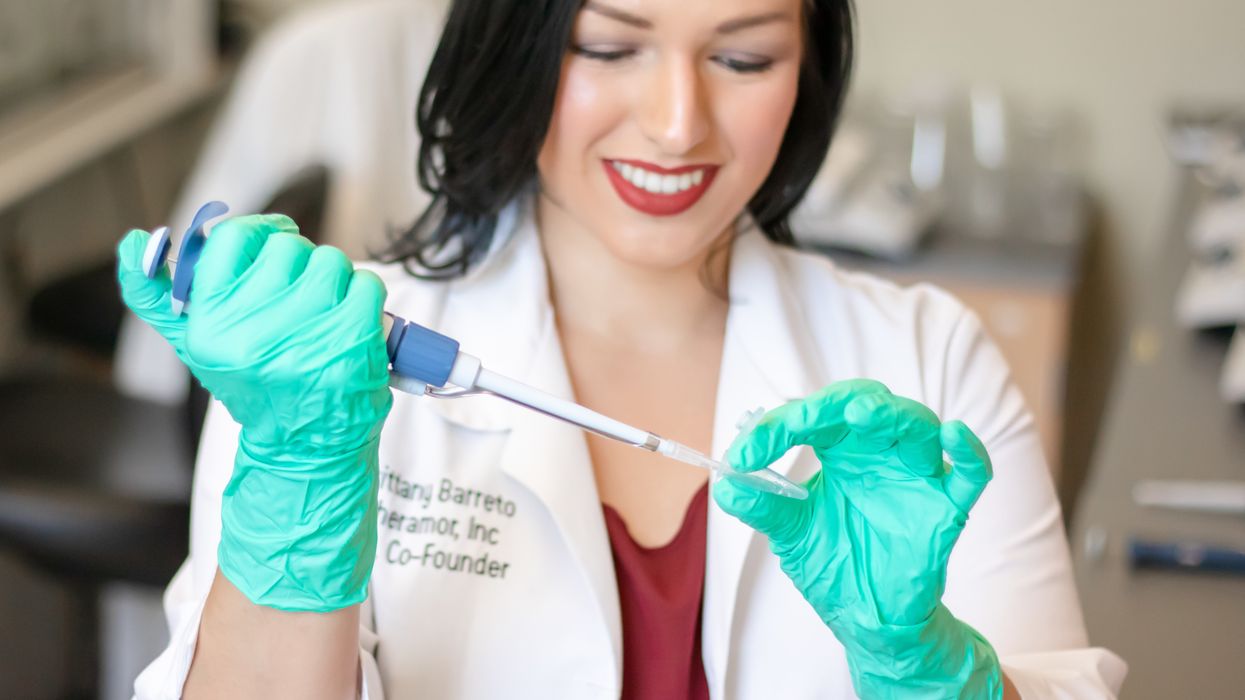As a busy lawyer who traveled heavily for work, Sylvia Kampshoff found her workouts were often overlooked as she went from city to city, a casualty of long hours and a busy schedule. And, even though she did have a membership to a national gym with privileges at any of its locations, she hated the feeling of always being sold something and disliked that both the trainers and managers she worked with took very little interest in her personal needs and fitness goals.
She wanted something that allowed her to exercise with someone on her own schedule, and with people who valued customer service. That's how the idea for Kanthaka was born.
The app uses location technology similar to that of ride sharing apps to allow users to book training sessions with certified personal trainers, all of whom are heavily vetted and background checked by Kampshoff and her team.
"Many trainers at gyms or who work privately aren't certified," she says. "And that was important to me, that we have professionals who understand training and the body. And making sure our clients felt safe was a huge priority for me. We interview every trainer personally to ensure they not only meet our standards but also share our goals."
App users can select a trainer who will lead them in a Pilates, yoga, boxing, general training, or a pre- or post-natal workout. They select their location, as well as the date and they want to schedule a session. They can book a single session for $42 for a 45-minute session or $50 for an hour session or purchase a package of six or 12 workouts. There's no long-term commitment — although Kampshoff says that some clients are asking for a monthly subscription option — and the process is designed to be easy and user friendly. Trainers will arrive at a client's home, office, or their preferred gym, providing the gym allows outside trainers to work there.
The app launched in Houston in 2017 and then in Austin this fall. Over the last year, Kampshoff — who left the legal profession to concentrate on Kanthaka's success — says she's learned a lot about the market and her own preconceptions.
"I figured it was going to be business travelers who used it, people who were like me when I was doing all that travel," she says. "But it turns out that we're seeing people use it who want to schedule a session just like any other appointment. Many of our clients are women, who value the rigorous vetting process we have for our trainers."
In addition to vetting the trainers and confirming their certifications with the National Academy for Sports Medicine or the American Council on Exercise, each trainer is reviewed by app users, to help others determine whether that person would be a good fit for their needs. Kanthaka allows users to "favorite" trainers, and book them again, and user testimonials tout Kanthaka's easy of use and great training team.
In addition to individual users who find the app via social media or internet searches, Kampshoff has developed partnerships with hotels and apartments around Houston. Kanthaka provides personal training services to guests at the Post Oak Hotel, and Hanover apartment properties list the app as a feature for its residents.
As she continues to grow the business and expand in other cities, Kampshoff is excited to see others buying into her concept of fitness.
"There is a culture behind Kanthaka. It's about health and fitness, but also achieving the lifestyle you want that allows you to feel better and live in a more positive way."







